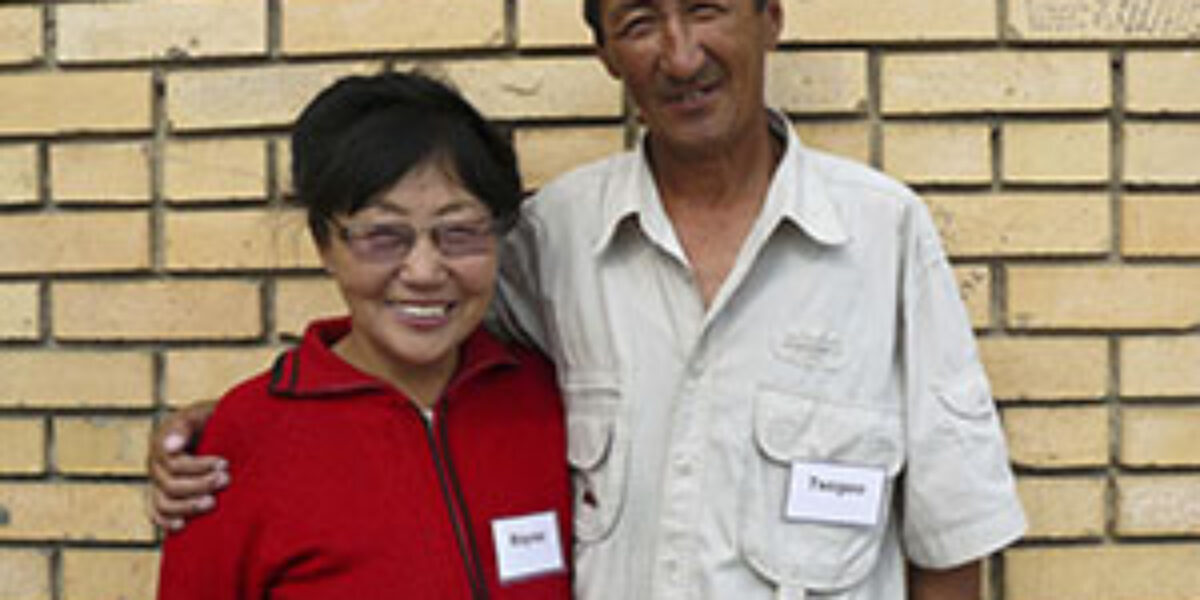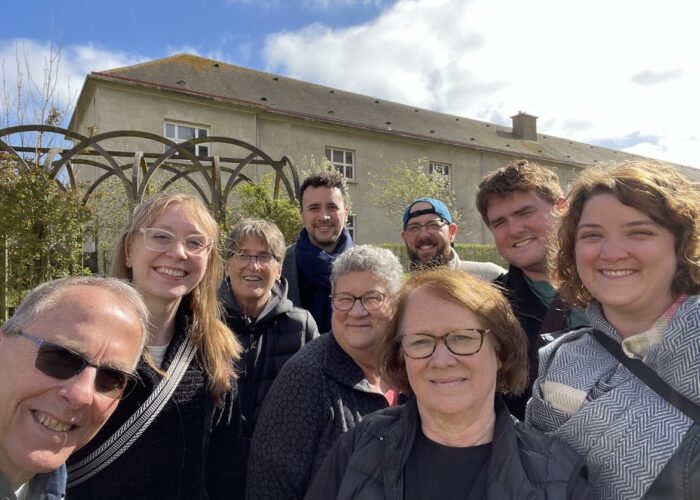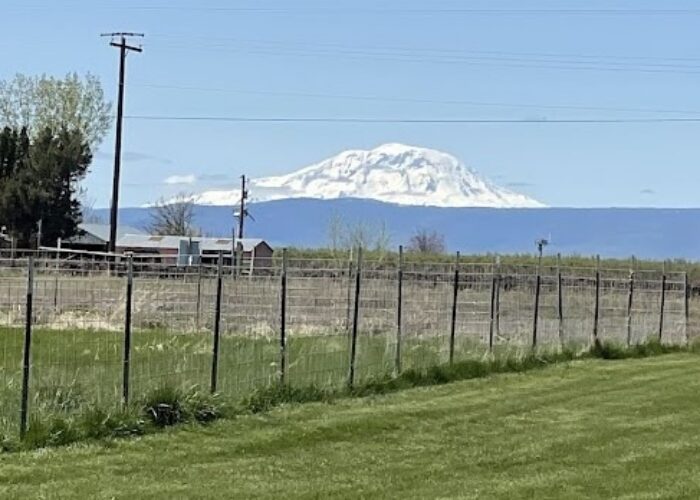ULAANBAATAR, Mongolia (JCS International/Mennonite Mission Network) — Three years ago, Kitchen Garden started a garden in Sharkhad, one of the poorest ger districts in Ulaanbaatar, Mongolia. Today one Mongolian couple has become the program’s greatest fruits.
Kitchen Garden, a program of Mennonite Mission Network partner Joint Christian Services International often called KiGa, works among poor families to improve their food sources by giving them a plot of land, horticultural training and seeds to grow vegetables. Many of their sites are in ger districts – areas where families first settle when moving to Mongolia’s capital city in search of a more modern lifestyle. Gers, the traditional Mongolian shelter, are felt tents.
“KiGa gives people in need the opportunity to, with hard work, better their lives through better nutrition as well as (gain) income by selling some of the vegetables,” said Marlow Ramsay, who administers JCS programming through the Mission Network and Mennonite Church Canada Witness. “We try to connect with local churches in the areas we have gardening sites so that people see the church as a legitimate partner in the community.”
Today the Sharkhad garden is flourishing after much work, water and love. The new crops include leafy supplies of zucchini, potatoes, tomatoes, cabbage, carrot, turnip, spinach and other vegetables alongside the changed lives. Orsoo Tsogoo and Ondov Bayraa call the Sharkhad KiGa site a “garden of Eden,” though it is surrounded by dust, heat, plastic bags and people with a drinking problem.
Tsogoo, 50, was once an alcoholic that beat his children and abused Bayraa, his wife. Today he’s the watchman at Sharkhad and disciples other recovering alcoholics.
Tsogoo first began drinking at 16 because it was fun and interesting. Later, he drank when he felt a bit down and increasingly drank more and more.
Tsogoo and Bayraa lived on the Russian border where Tsogoo served in the army for 14 years. But he was fired in 1997 when he got in an alcohol-fueled fight with other soldiers.
After this, Bayraa took two of their six children to Ulaanbaatar to live with her mother. Tsogoo began drinking even more heavily, but kept in touch via phone. For the children’s sake, Tsogoo and Bayraa decided not to get divorced.
In 1998, Tsogoo came to the capital with the other kids and, despite initially reducing his alcohol reliance, soon fell back into the habit again. He abused Bayraa verbally and beat the children. By 2005, the drinking had reached its heaviest point. His health deteriorated and doctors feared he would not live long.
Bayraa was working in a bakery and Tsogoo sometimes collected cans and bottles for money. KiGa project manager Yadmaa Turkhuu said when he first met Tsogoo, the man would lie around smoking in a dirty, rented ger while his kids stared at the television all day.
In December 2005, KiGa offered Tsogoo a job as a Sharkhad watchman. KiGa wanted a local family who knew the neighborhood and conditions to take on the job. Part of Tsogoo’s job requirement was to participate in another JCS initiative – a Celebrate Recovery group to help with his alcoholism.
Tsogoo completed the 12-step program and today, after 48 years of alcoholism, he reports no desire to drink or smoke. He and Bayraa became Christians and his health improved.
“When I started to go to Celebrate Recovery, I made the decision not to smoke again,” said Tsogoo. “And it was easy. … I believe that my high power, Jesus Christ, helped me.”
Today Tsogoo and Bayraa are discipling other people who want to be free of their addictions. They have taken in two homeless young men whose lives have been affected by alcohol and are involved in community church programs and evangelism.
When JCS sent New Zealanders David and Margaret Dumbleton to help at the garden site, Bayraa and Tsogoo continued their evangelism.
“Tsogoo showed me a picture of Jesus and asked if I knew who it was. I think he was ready to tell me if I didn’t,” David Dumbleton said.
Dumbleton said Tsoogoo testified about Christ and Celebrate Recovery to everyone. Even the truck drivers bringing in shipments of manure heard the news, and Tsoogoo noted their mobile numbers for future contacts.
Margaret Dumbleton said Bayraa was a woman of faith and grace, and both she and Tsogoo were area role models.
“They have a strong work ethic and are willing to be open to new ways of doing things to generate an income,” she said.
Ramsay said outsiders also can connect with the KiGa projects.
“KiGa can always use finances, but we have also had some people with gardening experience come short-term to help with teaching and just being friends to some of the workers,” he said.




